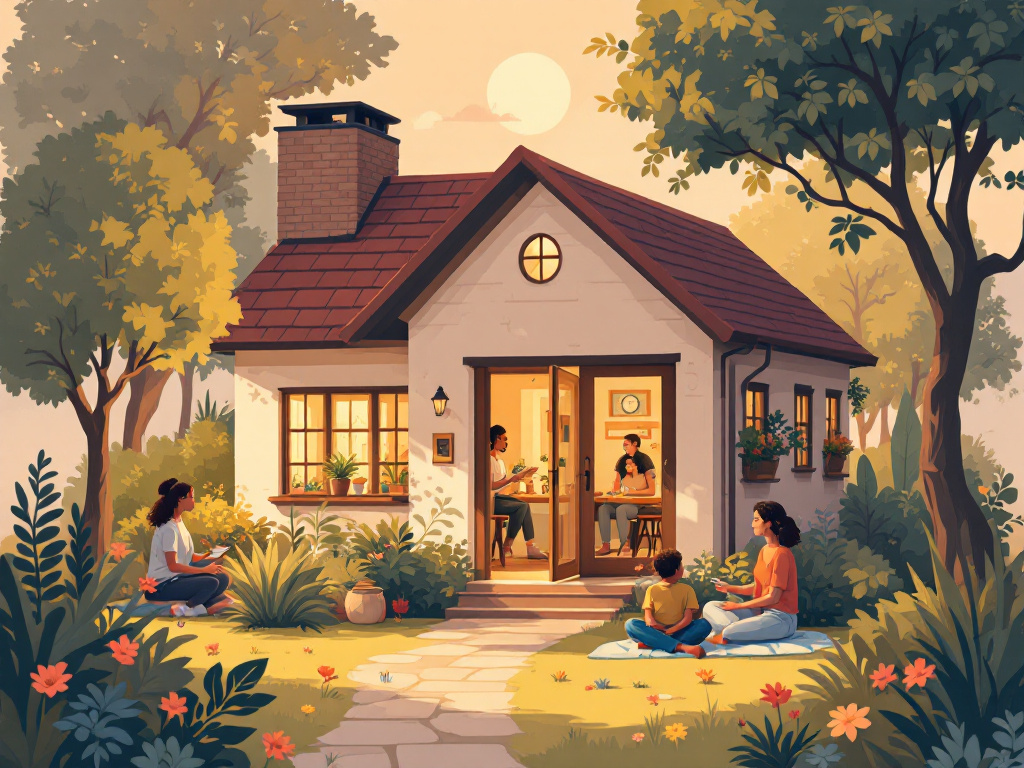Understand residential housing
As you seek stable support for mental health challenges, enrolling in a mental health residential housing program can be a vital step. This form of care offers structured living, 24-hour clinical supervision, and access to a multidisciplinary team dedicated to your recovery. By choosing a behavioral health residential facility tailored to adults in Virginia, you gain more than a roof overhead—you gain a foundation for lasting wellness.
Defining residential housing
A residential housing program provides on-site accommodations combined with therapeutic services. Unlike short-term crisis interventions, these programs deliver ongoing clinical oversight, medication management, and peer support. Typical settings include:
- Licensed group homes
- Supervised apartment communities
- Clinical cottages or campus-style residences
Each model emphasizes safety and routine, creating an environment where you can focus on healing without external stressors.
Who benefits from these programs
You might consider structured housing when you need:
- Stabilization after a psychiatric hospitalization
- Support managing co-occurring disorders such as substance use
- A stepping stone between inpatient care and independent living
- A therapeutic setting that reduces isolation and promotes community
By selecting a residential stabilization treatment center or a psychiatric residential care for adults, you ensure your needs for safety, supervision, and personalized therapy are met.
Explore program benefits
Residential housing delivers multiple advantages that extend beyond mere shelter. These benefits lay the groundwork for enhanced stability, stronger coping skills, and improved quality of life.
Immediate housing stability
Securing safe, supported housing curtails the cycle of homelessness, hospital readmissions, and crisis episodes. Research shows that immediate access to independent housing with mental health support led to:
- A significant reduction in inpatient days [1]
- Increased housing stability by an average of 116 days over two years
- Healthcare cost savings, with a mean difference of €-217 per participant over 24 months
By living in a supervised setting, you experience consistency that fosters recovery momentum.
Clinical oversight and support
Round-the-clock supervision by nurses, counselors, and peer mentors ensures that you receive:
- Regular wellness checks and medication monitoring
- Crisis intervention when needed
- Access to evidence-based therapies such as cognitive behavioral therapy
These elements reduce risk factors and build confidence in your ability to manage symptoms independently.
Holistic wellness environment
Beyond clinical care, many programs incorporate holistic offerings:
- Nutritional guidance and meal planning
- Yoga, meditation, or art therapy
- Recreational activities and life skills workshops
This balanced approach addresses mind, body, and spirit, empowering you to discover healthier coping mechanisms.
Review therapeutic services
A core component of residential housing is the range of therapeutic interventions designed to address mental health and substance use concerns.
Individual counseling and therapy
One-on-one sessions with licensed therapists allow you to:
- Explore underlying issues and trauma
- Develop personalized coping strategies
- Track your progress toward recovery goals
By engaging in residential counseling and therapy services, you cultivate insight and resilience.
Group therapy dynamics
Participating in group sessions offers:
- Peer support and shared experiences
- Accountability through group commitments
- Opportunities to practice interpersonal skills
These gatherings reinforce that you are not alone and strengthen your social network.
Skills building and life coaching
Practical workshops teach essential life skills:
- Budgeting and money management
- Job readiness and vocational training
- Communication and conflict resolution
Equipping yourself with these tools enhances independence when you transition out of residential care.
Evaluate housing models
Different housing formats cater to varying levels of need. Understanding each model helps you choose the best fit for your recovery journey.
Supportive housing approach
Supportive housing integrates affordable, permanent residences with flexible mental health supports. Outcomes include:
- High retention rates and housing stability [2]
- Symptom reduction and improved psychosocial functioning
This model emphasizes client choice, harm reduction, and voluntary participation in services.
Transitional housing structure
Structured transitional housing provides step-down support following acute treatment. Key features:
- Time-limited stays (often 3–12 months)
- Focus on independent living skills
- Regular case management
Many facilities offering structured transitional housing for recovery guide you toward full autonomy in a safe, graded environment.
Supervised residential care
In settings such as 24 hour supervised residential care, you receive continuous staffing support. These programs prioritize:
- Immediate crisis management
- Medication administration
- Frequent clinical reviews
This is ideal if you require a higher level of oversight during stabilization.
Assess cost and coverage
Understanding financial considerations ensures you can access the support you need without undue burden.
Insurance acceptance and coverage
Epic Health’s residential offerings include insurance covered residential program options. To determine your benefits:
- Contact your insurer for mental health and substance use coverage details
- Verify in-network status to minimize out-of-pocket expenses
- Discuss preauthorization requirements with your care coordinator
Many plans cover partial or full costs of stays, counseling, and medication management.
Affordable treatment services
If finances are a concern, explore:
- Sliding scale fees
- State or federal assistance programs
- Scholarship or grant opportunities
Housing costs should ideally remain under 30% of your income to promote long-term stability [3]. Programs designated as affordable residential treatment services can help you meet this benchmark.
Plan ongoing recovery
A successful residential stay is one part of a broader continuum. Planning for life after housing ensures sustainable progress.
Continuum of care
Coordinate with your team to secure:
- Outpatient therapy or dual diagnosis residential treatment virginia follow-up
- Medication management through local providers
- Peer support groups or community-based resources
Maintaining consistent engagement reduces relapse risk.
Aftercare and step down
Transitioning smoothly often involves structured aftercare. Consider enrolling in a residential aftercare and step down program that offers:
- Reduced supervision with ongoing counseling
- Home visits or check-in appointments
- Support group referrals
This tiered approach reinforces the skills and habits you built during residential housing.
Choose the right program
Selecting the program that aligns with your goals and preferences is crucial. Evaluate options based on the following criteria.
Accreditation and evidence based care
Ensure the facility holds accreditation from reputable bodies and offers an evidence based residential care program. This demonstrates commitment to proven clinical practices and quality standards.
Location and amenities
Your comfort and convenience matter. Compare facilities on:
- Proximity to family or support networks
- Privacy and rooming options
- Recreational spaces and communal areas
A positive environment supports motivation and well-being.
Personalized treatment plans
Look for programs that design individualized plans addressing:
- Your specific diagnosis and history
- Co-occurring substance use or medical conditions
- Personal recovery goals
Facilities specializing in residential substance use treatment program or long term residential treatment for adults often excel at customization.
Find additional resources
Embarking on a residential journey can feel overwhelming. Below is a quick reference table to guide your research:
| Resource type | Purpose | Example link |
|---|---|---|
| Transitional housing | Bridge between inpatient and independent living | /structured-transitional-housing-for-recovery |
| Intensive residential care | High-level supervision for stabilization | /24-hour-supervised-residential-care |
| Dual diagnosis support | Integrated treatment for co-occurring disorders | /dual-diagnosis-residential-treatment-virginia |
| Therapeutic housing | Long-term, supportive environment | /therapeutic-housing-for-mental-illness |
| Aftercare and step-down | Ongoing support post-residential stay | /residential-aftercare-and-step-down-program |
| Supervised mental health housing | Licensed, monitored residences | /supervised-mental-health-housing-virginia |
| Insurance and affordability options | Financial guidance and coverage verification | /insurance-covered-residential-program |
By leveraging these resources and aligning them with your needs, you enhance your chances of a stable, empowering recovery.
Taking the step to join a mental health residential housing program shows your commitment to lasting change. With structured care, clinical oversight, and a supportive community, you’ll build the skills and confidence needed for independent living. Reach out today to explore options and begin your path toward a healthier, more stable future.
References
- (PubMed Central)
- (NCBI)
- (NAMI)







